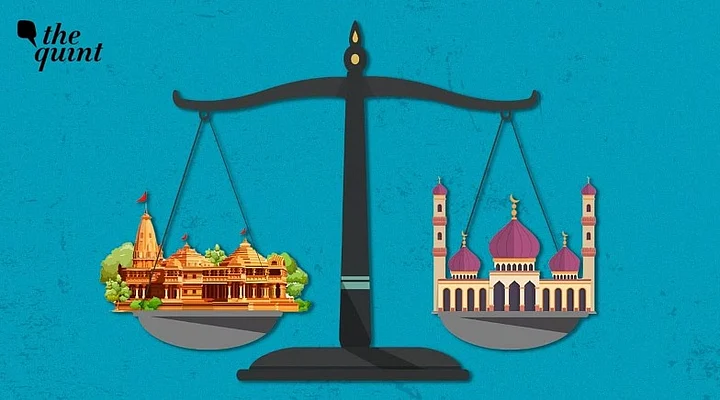(The Law Commission has decided to solicit views from the Indian public on the idea of a uniform civil code. It has also invited religious and social bodies to share their perspectives on the same. The crux of the debate is whether the discourse for this 'reform' should involve religious leaders and other such groups, or be limited to the legislature and the judiciary. Is there a line? If yes, where should it be drawn? This article argues that the law commission's move is a welcome one. Read the opposing arguments here.)
The Roman principle of “Quod omnes tangit ab omnibus approbari debet” translates to "What touches all, should be approved of all" in English. And in that light, the move by the Law Commission of India to invite views and ideas on the Uniform Civil Code (UCC) from recognised religious organisations, is welcome which is in concurrence with the constitutional mandate and in obedience of judicial observations.
The public notification acknowledges that previously, the Law Commission had examined the issue of UCC and solicited the views of all the stakeholders through its appeal along with a questionnaire dated 7 October 2016 and further public appeals/notices dated 19 March 2018 and 27 March 2018, and 10 April 2018.
Why UCC is Important
India carries within its fold, eight major religions and multiple sects. Rich in diversity, the practices relating to marriage, adoption, guardianship and child custody, maintenance, divorce, inheritance, and succession considerably vary among the citizens of the country primarily on the ground of the religion they follow.
While on one hand, the constitution restricts the ruling establishments to discriminate between citizens or classes of citizens on the ground of religion (Article 15), on the other, it guarantees a right, fundamental in nature (Article 25), to profess, practice and propagate religion freely.
Interestingly, the fundamental right enshrined in Article 25 is by itself subject to other fundamental rights including Article 15. The two rights, both almost equal in power, being fundamentally guaranteed, pave the way for a common tool to deal with all these issues irrespective of religion.
The Constitution fortunately does not abandon hope and in between the two fundamental rights, the provision to develop a Uniform Civil Code (UCC) as enlisted in Article 44 finds a place in the chapter on Directive Principles of State Policy (DPSP) in the form of a formula to solve this constitutional tension. Unfortunately, this provision is still waiting for its Prana Pratishtha (consecration).
Article 44 states: "The State shall endeavour to secure the citizens a Uniform Civil Code throughout the territory of India." The Judiciary has also taken cognisance of the importance this provision carries continually.
In Shah Bano case (1985), regarding the rights of Muslim women in divorce to claim maintenance, the Supreme Court observed that “The Parliament should outline the contours of a common civil code as it is an instrument that facilitates national harmony and equality before law.” In ABC vs State of Delhi (2015), the Supreme Court had observed that the Uniform Civil Code “remains an unaddressed constitutional expectation."
Several Public Interest Litigations (PILs) are also currently pending before the Supreme Court of India, seeking regulation of laws related to divorce, guardianship, and succession.
Why the Law Commission's Move is a Welcome One
Although the 2018 consultation paper had observed that certain practices within the various family law regimes in India discriminate against women and need to be addressed, it did not take steps further to recommend necessary amendments. Since then, however, a lot of water has flown under the bridge.
At least seven state governments have come forward strongly mooting the necessity of having a Uniform Civil Code. The elected government in the state of Uttarakhand even constituted a Committee under the aegis of Justice (Retd) Ranjana Prakash Desai to examine the issue. Last year, the Gujarat government had also decided to form a committee to implement the UCC.
Similarly, the states of Uttar Pradesh, Madhya Pradesh, Haryana and Assam have also mooted the idea of having a uniform code for all. The Supreme Court while responding to an appeal filed against a committee formed by the Uttarakhand government for UCC had stated the states have the right to draft such law.
Here is where opinion of the public and recognised religious organisations gathers significance.
Although states are empowered to examine and frame the law on the subject, it is in national interest that a uniform policy is adopted after a discussion on a larger scale. This also boils down to the essence of a democracy.
A larger debate on the topic will also be beneficial for the legislators to deliberate on the subject, particularly keeping in mind the sensitivity of the matter. Further, taking all recognised religious groups along as the discussion unfolds will limit opposition, create room for polite disagreement, clarification and discussion; thereby paving the way for smoother enactment of the law.
(Namit Saxena is an Advocate-on Record at the Supreme Court of India. He tweets @namitsaxena2007. This is an opinion article and the views expressed are the author’s own. The Quint neither endorses nor is responsible for them.)
